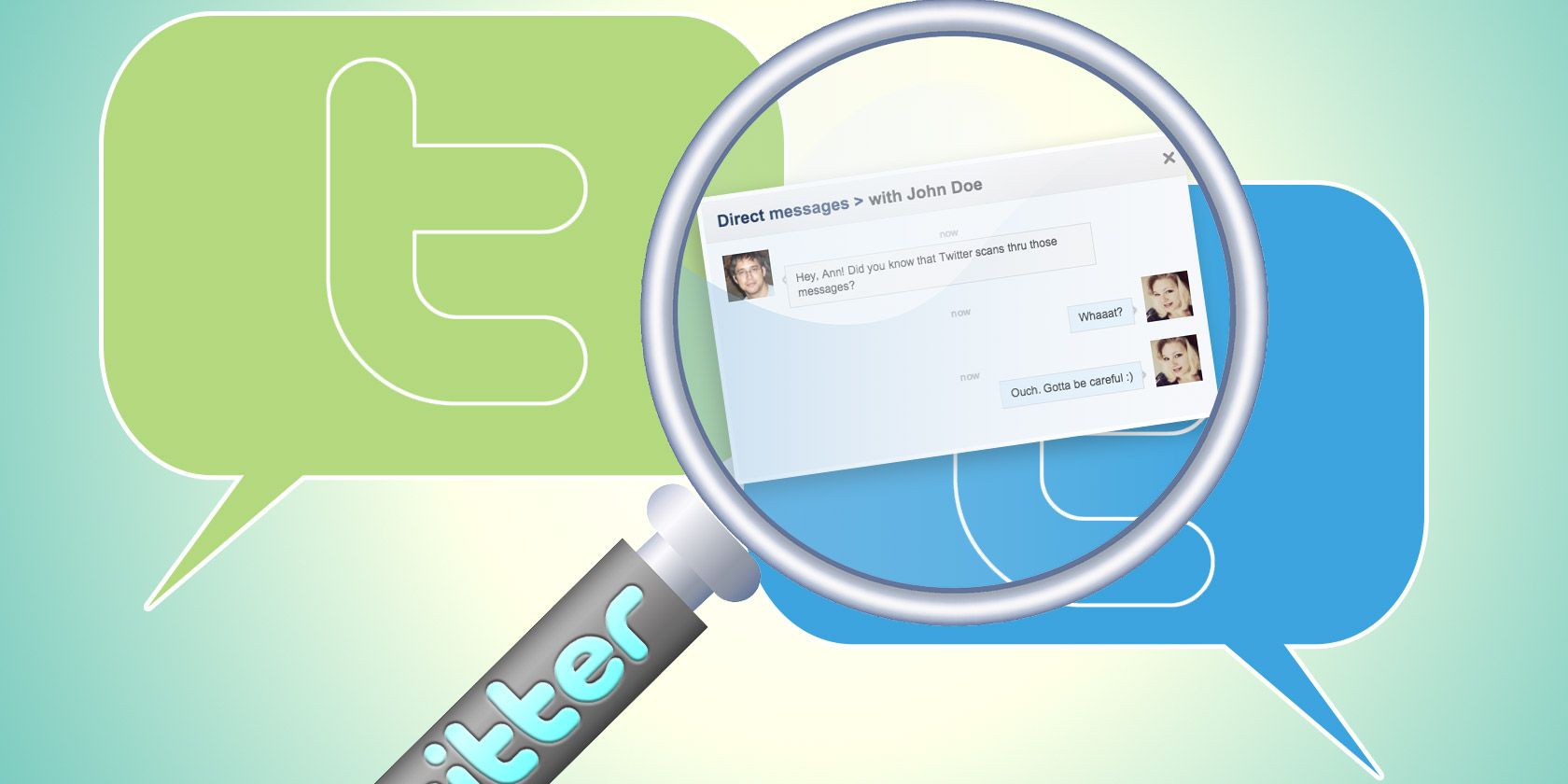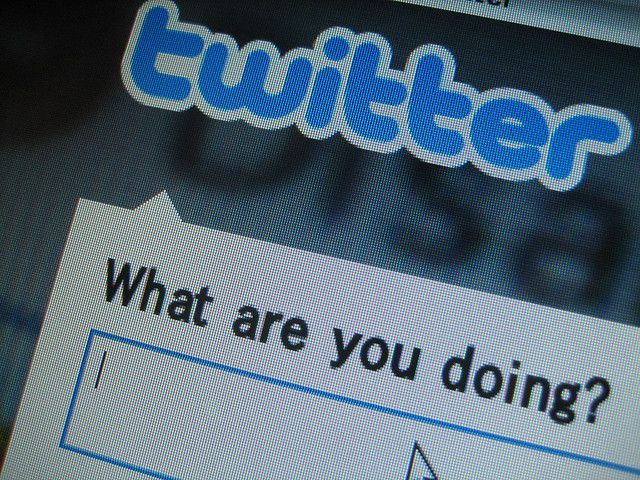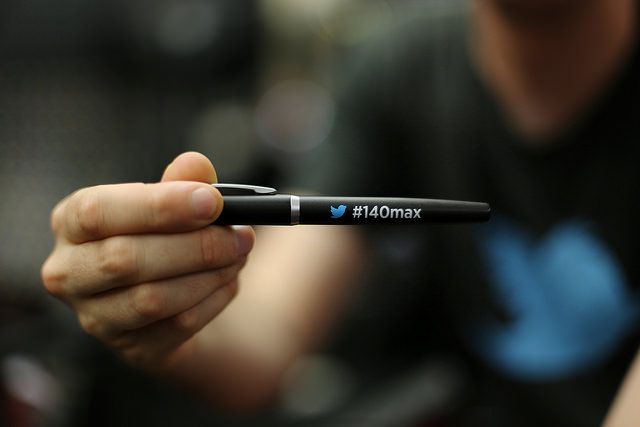Social networking is a massive risk to your privacy, and furthermore to your security. After all, if you let something like Digital Shadow loose on your Facebook profile, it can glean all sorts of information about you. If you've not created a secure but memorable one, it can even guess your passwords.
But if you're smart and limit the information you give publically, you can keep a fair degree of personal information private.
Twitter, however, is one of the biggest threats to privacy – and if a new lawsuit is correct, it could be an even bigger issue...
Here's What Might Be Happening
Your profile is automatically public. We know this. Equally, we know that you can make it private, and you can easily block any nuisance followers too.
Direct messages (DMs), though, have always felt safer: if you want to contact someone without littering up their feed, or exchange some personal data without informing the world, DMing them is a safe bet. Earlier this year, Twitter gave you the ability to opt-in to receiving direct messages from anyone – not just people you follow.
But a recent lawsuit alleges that your DMs aren't entirely private; Twitter is supposedly reading them.
Filed on Monday 14th September 2015, Wilford Raney is questioning the company's ability to intercept and redirect links in DMs. You know when a link is shortened? It's a handy thing because you're still constricted to 140 characters, and this allows you more room to talk. Right? Well, no. Because links in DMs don't add to your limit. Raney accuses:
"Before Twitter delivers the message to the intended recipient, Twitter intercepts and accesses the contents of the message. The moment the consumer clicks Send, Twitter's service will open, scan, and potentially alter the contents of the message."
Short links are created by an algorithm that scans messages and automatically replaces full URLs with more clipped versions. Users have nonetheless been doing this themselves using sites like TinyURL for years.
Naturally, Twitter asserts that they'll fight this "meritless" accusation.
What This Could Mean For You
If URLs don't affect your character limit, what's the point? You have to look at why Twitter is doing this – or speculate at the very least.
The lawsuit alleges it's all about money. And seeing as Twitter is a business (created by a podcasting business), you can certainly see its point.
Knowing which websites its users are heading to "increases [Twitter's] perceived value to third-party websites and would-be advertisers", Raney claims, which means higher advertising fees. Think about those Promoted Tweets. You might find them annoying, but they're tailored for you. Facebook does the same – even if you're not on the social network, Facebook still creates a shadow profile of you. It would be naive to think Twitter doesn't use similar techniques to bump up rates.
It's up to the courts to decide whether their automatic interceptions are actually an invasion of privacy.
Similarly, it's not a great stretch of the imagination to gather that further data could be acquired about you via DMs, just as Facebook's so-called private message service does. This could largely be metadata – or in other words, details of when you're online, and what device you're using. Again, this would mean marketing is targeted specifically at you during peak times and related to if you own, for instance, a phablet.
It's not especially a security concern – okay, it is a bit, but there are far worse things out there. Get enough information about an individual and you can make educated guesses when it comes to passwords and PINs. But privacy is the big worry here. Privacy is our right, or, as Edward Snowden very famously put it:
"Arguing that you don't care about the right to privacy because you have nothing to hide is no different than saying you don't care about free speech because you have nothing to say."
Indeed, if you're not worried about your own privacy, why use DMs at all? Of course, you could argue that as a very public forum, it's natural that Twitter is keeping tabs on you, and that you agree to that when you sign up.
What Can You Do About It?
You're concerned about what Twitter may be reading. Fair enough. They might be unwarranted worries, but there are still things you can do about it.
This might sound stupid, but don't send links. Algorithms may continue to scour your DMs, but they'll glean few important details about what you're interested in, and that limits their capacity to offer adverts tailored to your tastes. The more people do this, the less value DMs in general are worth to the company.
The majority of the people you talk to 'privately' over Twitter are users you know well. You don't typically exchange personal info with strangers (hopefully!), so why not take messages you want to stay between you and a friend to another, safer platform – namely, encrypted messengers?
Something as simple as iMessage allows you to converse (sans eavesdroppers) with someone you know and care about. So does Skype. There are many alternatives. For instance, WhatsApp is insanely popular, and rightly so – but after Facebook's acquisition of it, many are questioning how private it really is.
The worry is that encrypted message services could soon be an endangered species: not only is the National Security Agency (NSA) looking for 'front-door' access, but the UK's proposed Snooper's Charter could also mean The End.
Okay, so what do you do if you're trying to contact a celebrity? Maybe you're hankering for an interview and don't want to publically announce your proposal in case: i) it never happens; or ii) it actually does happen. Perhaps you just want to let them know you're a big fan, but don't want all the world to see? Try emailing or sending a fan letter instead. The former obviously applies to anyone whose address is either searchable or known to you; the latter... less so.
If you're worried people will know you're a fan of, say, Playboy, or even worse, Justin Bieber, you shouldn't be following them anyway.
Are You Worried About DMs?
Twitter is one of the most public social networks, but being spied upon by the company itself is a different level of monitoring – because of the amount of data potentially available to them.
But it's not proven yet. The lawsuit is still to be settled. Twitter's going to fight it. It will nonetheless be interesting to see how they defend themselves. Exactly why are they clipping links down, if not to allow for the character limit?
Are you concerned? Do the algorithms that search DMs and apply shortened URLs affect your privacy? Or do you think nothing important will come from it?
Image Credits: What Are You Doing by keiyac; Twitter pen by Manuel Schmalsteig; and Eavesdropping by A. Strakey.




